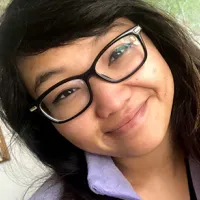'Get Boosted'
“Get boosted.”
That was the resounding message at UCSF’s final COVID-19 town hall of 2021 on December 17. All eligible UCSF learners and employees have only a few weeks left to get the mandated booster shot as the Omicron and Delta variants spread quickly through the community. In keeping with one of several new policies aimed at reducing the spread, the booster vaccination deadline is January 31, 2022.
UCSF Chancellor Sam Hawgood said that as of mid-December, 40% of eligible UCSF learners and employees had gotten their booster shots. The goal is 98%.That figure is meant to match the vaccination rate UCSF had achieved with the initial round of COVID-19 doses.
As far as which booster to get, or whether Omicron or Delta-specific vaccines are on the horizon, Dr. George Rutherford, professor of epidemiology and biostatistics offered a tip: “If you got the J&J, hands down get the mRNA booster” this time around. Panelist members had no strong feelings for or against mixing-and-matching vaccines.
“The one thing you should take away from today — to echo Chancellor Hawgood’s words — is to go get boosted today,” Dr. Rutherford said.
The date of returning to on-site work for those who have been working remotely remains March 1, though Chancellor Hawgood emphasized the need for remaining “open to changing policy as science dictates.”
Omicron was reported as a variant of concern to the WHO on the brink of the holiday season. From mid-November to the Dec. 17 town hall, the Omicron variant was well on its way to crossing the Delta variant as the dominant strain in the country. It already accounted for 80% of the rising infections in South Africa and was the culprit for massive outbreaks throughout Europe.
But the panel offered some welcome news. Virology professor Dr. Charles Chiu reported on research from the University of Hong Kong that suggested the Omicron variant was more infectious to airway cells but less infectious to lung tissue, which implies a more transmissible but less severe presentation of disease.
Dr. Peter Chin-Hong added to the good news by describing data that preliminarily showed shorter durations of hospitalization for patients with the Omicron variant. Other research shows that a booster dose of the COVID vaccine raises antibody levels and offers good protection against Omicron.
Dr. Chin-Hong also spoke of treatments to come, describing the coming approval of oral antivirals like Paxlovid — the “Tamiflu of COVID.” There are hopes that having an antiviral pill will help to democratize treatment, though the logistics of approval, supply, and distribution remain in discussion (the Paxlovid pill was later approved by the FDA on December 22).
Moderator Dr. Robert Wachter said the town hall had been a “more hopeful conversation than I’ve had about this in a little while.”
However, this is not a time to “rest on our laurels,” said town hall panel member Dr. Kim Rhoads, founder of Umoja Health Partners and director of the Office of Community Engagement at the UCSF cancer center.
The San Francisco city and county shows an 81% double vaccination rate but a sizable number of people in the community continue to be unreached.
Dr. Rhoads called for more rigor in tackling disparities on a hyperlocal level. Partnering with neighborhood organizations and faith-based programs have been instrumental in engaging community members and Dr. Rhoads emphasized the need to continue these efforts into the new year. And as outreach continues, so must surveillance.
Dr. Monica Gandhi recommended testing for any unvaccinated or symptomatic individual. And Dr. Chin-Hong spoke anecdotally of a colleague whose family has gotten into “family testing” before any gatherings as a precaution. All panelist members recommended the well-known practices of proper hand hygiene, staying home if symptomatic, and wearing a mask especially when inside and with others.



